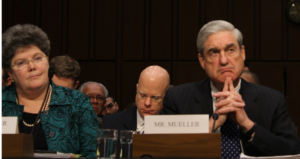Rooting for the Insights Hero
The worst day you’ll have as a public affairs professional is the day your CEO or client calls to ask why you missed something big. Your job was to catch the bill that dents the bottom line; to spot those culture war bullets from the left and right flanks; to counsel caution before the picketers line up outside. But you got surprised, and now your boss is on the other line, and you’re quoting your favorite pop star: “Hi, I’m the problem, it’s me.”
Swift lyrics aside, being caught off guard is a real threat for public affairs professionals. A recent survey found that nine in ten of them report either missing something important each year or not even knowing whether they missed anything at all. Today’s public affairs environment only makes the threat worse: primary season is stoking partisan fires, the Biden Administration’s shift into campaign mode leaving regulatory debris in its wake, and Trump a single rally or social media post away from unleashing a maelstrom your company or industry has to address.
Yet there’s a way to avoid the surprise, and the unwelcome phone call that follows. As our CEO Jeff Berkowitz outlines it in his latest Forbes column published today: Only robust, methodically rigorous competitive intelligence (CI) can provide the strategic roadmap organizations need to navigate the political roadblocks. But surprisingly, many companies that will invest significant resources in CI for everything from consumer trends and industry innovations to marketing campaigns skimp on such resources for their public affairs operation. Instead of ensuring their public affairs department has the right in-depth insights on the political and stakeholder dynamics affecting their business and policy objectives, the C-Suite ends up calling the department wondering why the company got blindsided.
Subscribe to Receive Insights
"*" indicates required fields
There’s a way to be the public affairs hero of this story. Here’s what you need to know to ensure your organization makes a culture shift in the way it thinks about public affairs intelligence.
This Isn’t Your Father’s Competitive Intelligence
To convince your organization or clients that political risks are worth taking seriously, start with the bottom line. As Jeff notes in his column:
“In 2013, McKinsey estimated that up to 30% of corporate earnings are at risk ‘from government and regulatory intervention.’ In today’s even more polarized and politicized operating landscape, I think that figure is likely even higher. Ignoring political and reputational risks can be costly.”
Managing political and regulatory risks is especially challenging for today’s public affairs professionals, who face more information than ever before and are expected to respond faster than the refresh of a TikTok feed. Meanwhile, they need to track an ever-increasing set of issues and broadening field of stakeholder voices growing louder and cleverer by the day. Not surprisingly, the same survey noted above found “fear of missing something important” and the “high volume of issues” they need to track are two of the biggest concerns public affairs professionals have today.
This chaotic reality for public affairs professionals is what makes robust, methodologically rigorous CI necessary for every important business decision. Gone are the days when a public affairs old hand could spitball about the way Congress just is. Today’s CI for public affairs must follow trendlines and data spanning more jurisdictions and a wider array of stakeholders while including sources beyond basic legislative trackers and news updates.
The Culture Shift Needed to Leverage CI for Political Risk
To avoid the dreaded phone call about missing something big, you’ll need more than just some team members armed with Google. You’ll need an entire culture shift. Public affairs teams need to be armed with the right insights and know “how to leverage this intelligence in a proactive, strategic manner” that weaves it “into the fabric of decision-making.” A proactive, relevant CI program like this starts with four key steps, as Jeff details in Forbes:
- Assess the landscape. You need a comprehensive lay of the political and regulatory land—the opportunities and risks across jurisdictions—to even begin crafting the rest of a research strategy. That external analysis is key, but so is an internal examination of your organization’s vulnerabilities and opportunities.
“Whether it’s a tech firm grappling with data privacy regulations or a manufacturing giant navigating environmental policies, understanding what your risks are upfront is key to crafting a proactive, resilient strategy.”
- Map your stakeholders. You need to know the full range of allies, skeptics, and opponents in your political and regulatory battles.
“Effective stakeholder mapping identifies unexpected allies and exposes surprising opponents, then assesses their positions, motivations and the dynamics between them.”
- Get smart about friends and foes. Once you know which stakeholders and policymakers matter, it is time to develop a full understanding on them.
“Effective CI professionals dive deeper, ensuring businesses understand policymakers and stakeholders deeply enough to ensure they aren’t just reacting to stakeholders’ moves but proactively engaging with them.”
- Build an early-warning system. You need to set up a robust system for monitoring the stakeholders and policymakers you identified in the first steps; a system that “anticipates what’s next, identifies trends and issues before it is too late and surfaces weak signals.”
“Make sure this monitoring program goes beyond the traditional news clips and social media listening, encompassing a broad range of sources like legislative actions and regulatory filings and other relevant materials that may not make the news until it is too late, or not at all.”
How to Be the Public Affairs Insights Hero
No company can afford to take a shoot-from-the-hip public affairs approach in 2024, when elections and AI and any number of black swan events promise to surprise even those with the most experience and best instincts. If you really want to avoid an angry call from your boss or your clients, convince them to invest in a rigorous CI program this year, with deep-dive research and extensive issue and stakeholder monitoring. That will make you the Insights Hero of public affairs.
If getting started feels overwhelming, Delve is here to help. For the past nine years, we’ve helped our clients gain the information advantage they need in their public affairs operations. If you’re interested in chatting with us about building a robust competitive intelligence program to help your company navigate 2024, feel free to reach out.



